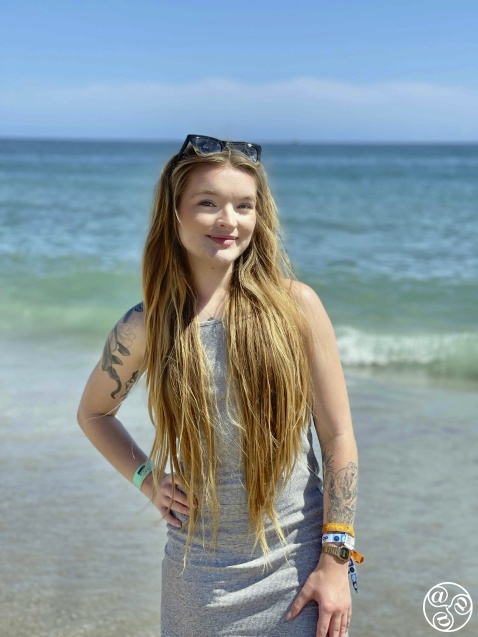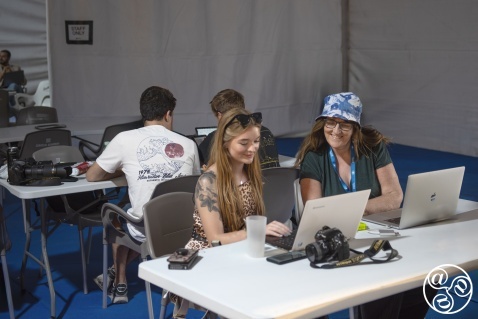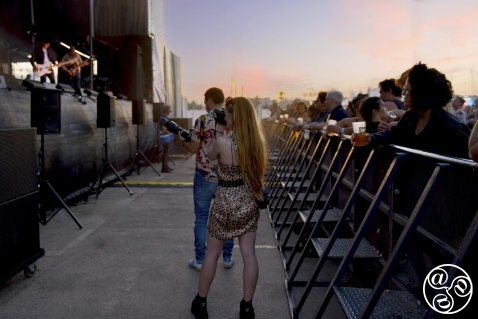
Alex's favourite time to go to festival's in Andalucia |
|
Alex Cutts Interview
Andalucia.com’s Alex Cutts on flamenco, and festivals that bring Andalucian culture to life.
Alex Cutts is a journalist and festival writer with a passion for Andalusian culture. She has immersed herself into the region’s vibrant music scene, exploring how flamenco and local festivals reflect the spirit and identity of Andalucía. With a background in journalism and a deep love of live performance, Alex brings curiosity and cultural insight to every piece she writes.
When did you first start writing about music festivals for Andalucia.com?
I seem to remember that I began writing for Andalucia.com back in 2021, after graduating from Sheffield Hallam University in 2020 with a Bachelor of Arts in Journalism.
Can you tell us a little about your background and how it led you to this role?
During my time at university, I studied in Madrid as part of the Erasmus scheme, which sparked a lasting interest in Spain and Spanish culture. This became the focus of my early work for Andalucia.com. As I learned more about the region’s vibrant events and festivals, I began writing about them too, bringing together my enthusiasm for Spanish culture and my passion for live music.
How do you think the website has evolved in terms of covering cultural and music events?
Andalucia.com is great because it showcases a range of festivals for all kinds of musical interests, whether that’s more traditional festivals with a local feel, or big shows boasting line ups of international artists.
How many festivals have you attended or written about so far?
I have attended at least 12 different festivals, and have seen more than 280 artists live in concert, including Glastonbury as both a volunteer, and visitor.
What five tips would you give to someone wanting to travel to Andalucia for festivals?
Get immersed in the culture and listen to some of the local talent! Spanish and Latin music is often hard to come by in the UK, so having the opportunity to see groups live in their own town is truly special. There is a big community feel behind the music here, everybody joins in, whether that’s tapping their feet and clapping their hands or dancing Sevillanas.
What are your tips for what to wear to a Spanish music festival — both practically and stylishly?
Comfy shoes and light layers! You’ll cover a lot of ground moving from stage to stage, so solid footwear is a must-have. Spanish festivals get a lot of sunshine, so bring light, airy layers and something to cover your shoulders with at night once the temperature drops.
What is your favourite section/page of Andalucia.com related to music or culture?
I always turn to the Music Festivals page because you can see all of the upcoming events in one place and plan your trips accordingly.
Which is your favourite Andalucía city for live music? Is it somewhere you’re living, have lived, or would like to live?
Malaga! I’ve never lived there, but when I visit, there’s always a great mix of traditional Spanish music and new pop sounds.
What is your favourite Andalucian tradition/custom/event linked to music or performance?
Flamenco! It’s so powerful and mesmerising to watch.
What is, in your opinion, the best time of year in Andalucía for music lovers?
The summer. That’s when most of the big festivals take place and it is the perfect time to enjoy the region’s sunshine to its fullest.
Do you have a favourite Andalucian dish or tapa you always look for during festivals?
Croquetas de jamón, they’re bite-sized and delicious.
Where in Andalucía do you go to relax and recharge after a busy festival season — countryside, beach, mountain, or another spot?
The beach. I love dancing to upbeat music, but there’s nothing more relaxing than listening to the waves crashing on the shore.
What interesting things have you learned from covering the Andalucian music scene?
Latin music is huge! Some of these artists have millions of monthly listeners on Spotify but they’re never showcased in English-speaking countries. Rap often features in Andalucian music, putting a modern-day spin on something traditional.
What are the main differences between festivals in other countries compared to those in Spain?
Festivals in Spain start and end much later than in the UK. Often the first act doesn't start until around 4 or 5pm and the headliner finishes after midnight.
Can you describe what it’s like to be standing in the pit [security area closest to the stage], under the Andalucia sky, watching the artists during a performance?
The best feeling ever: all the people in that crowd are there for the same reason - to enjoy the music, and really feel the vibe.
What 5 tips would you give to someone wanting to travel to Andalucia for festivals?
Bring sunscreen. Explore the region outside of the festival. Try the local cuisine. Don’t just come for the headliners, catch as many of the local acts as you can. Mingle with others and enjoy the festivals together!
Tell us five words that describe what Andalucía’s music scene means to you.
Special, inspiring, comforting, liberating, lively.

